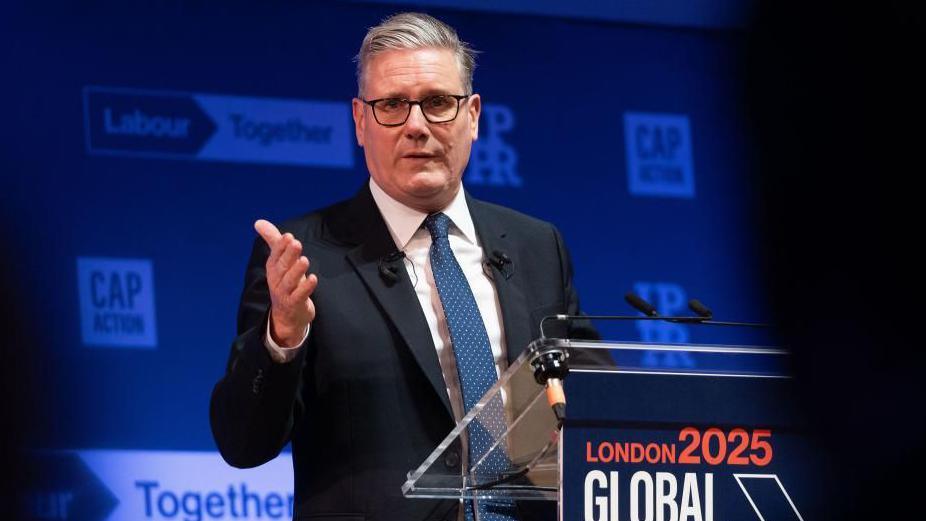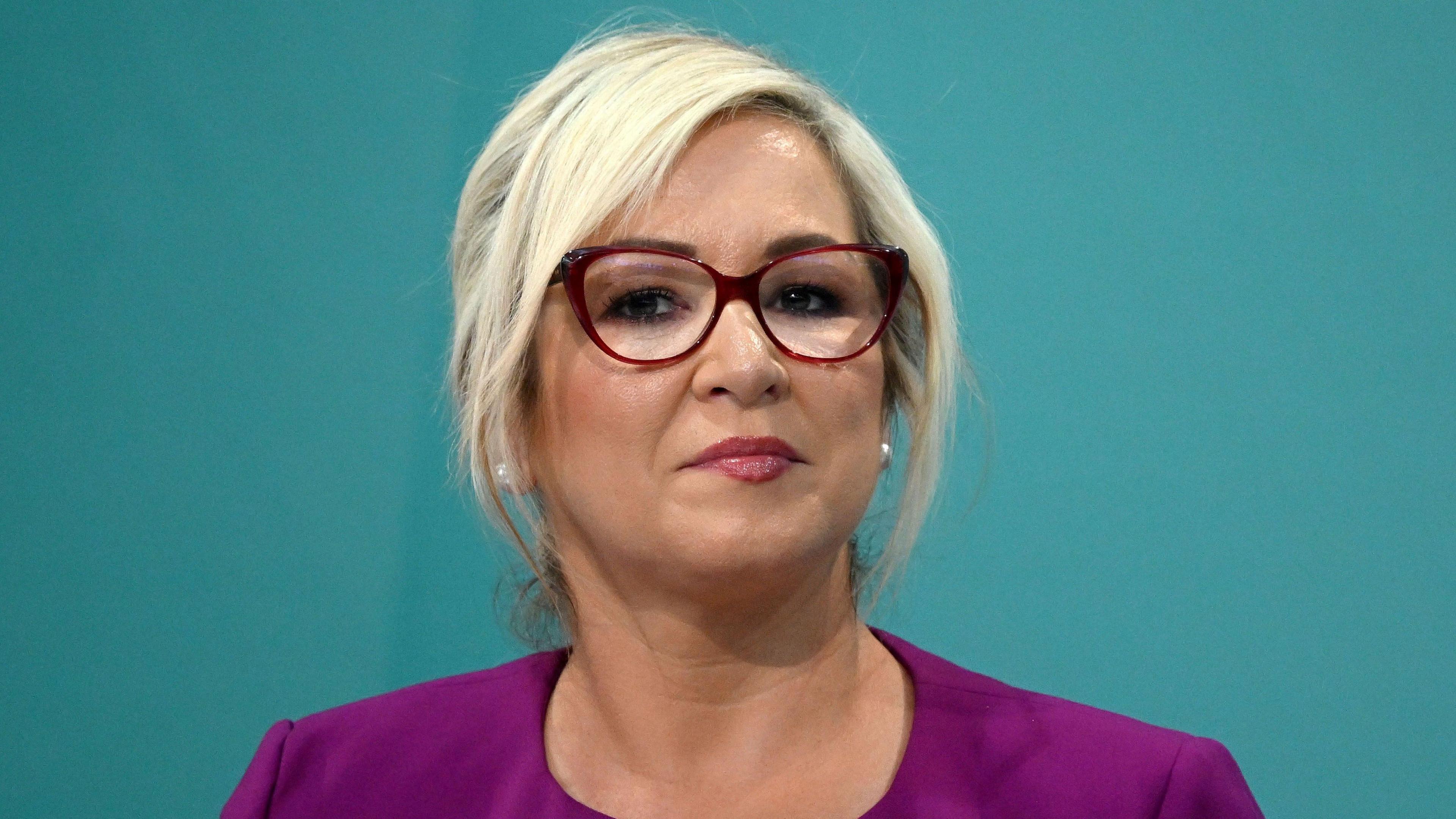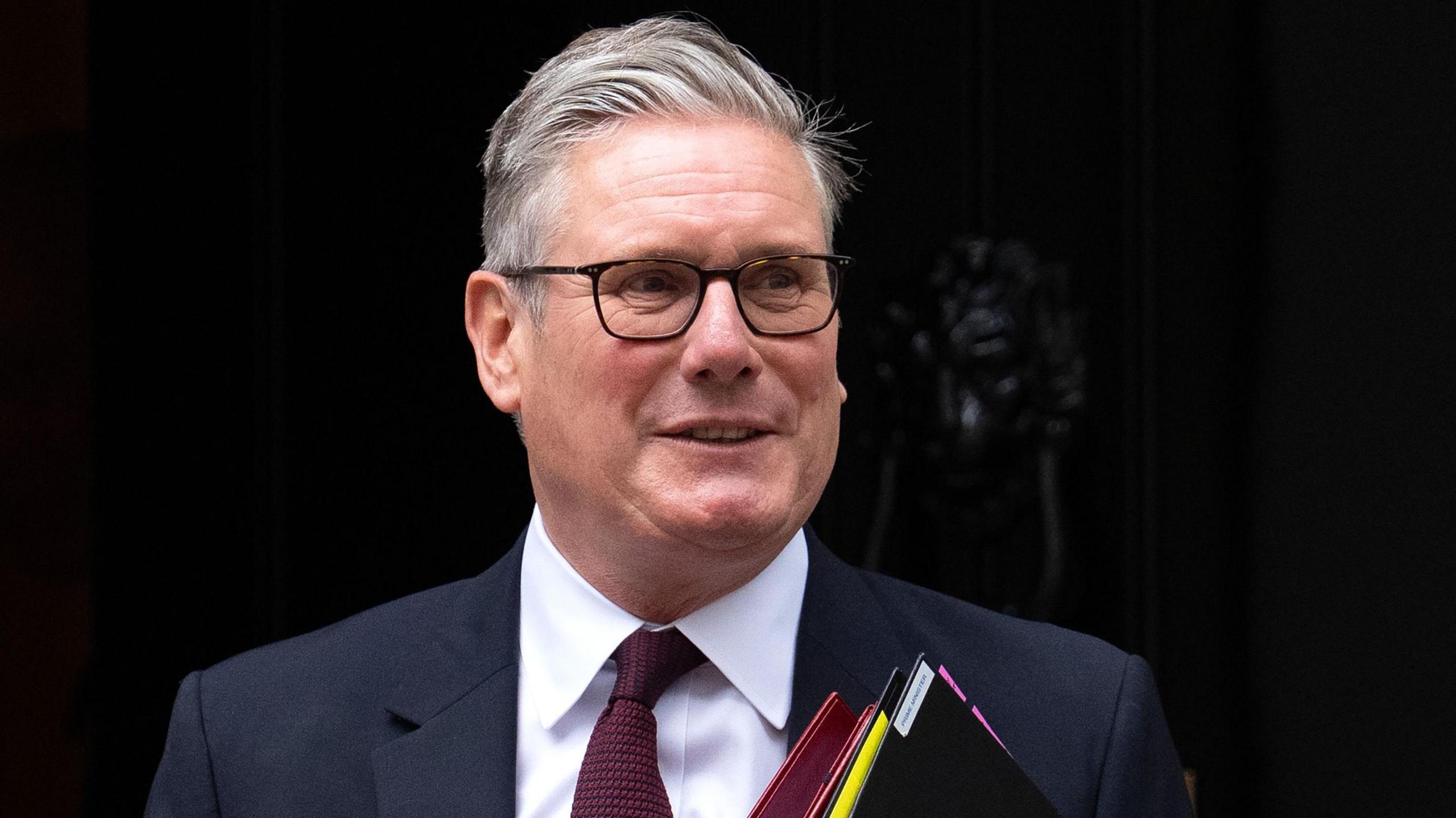NI parties unite in criticism over Starmer's digital ID scheme

Prime Minister Sir Keir Starmer said the new digital ID scheme would make it tougher to work in the UK illegally
- Published
All five of Northern Ireland's main parties have unanimously rejected Sir Keir's Starmer's new scheme to introduce digital IDs.
The ID card, which will be mandatory, will include a name, DOB, nationality or residency status, and a photo.
Michelle O'Neill, the first minister, has called plans for a compulsory UK-wide digital ID scheme "ludicrous, ill-thought out" and an "attack" on the Good Friday Agreement.
The Good Friday Agreement allows people born in Northern Ireland to identify as British, Irish or both. The UK government said that any proposed changes would respect the agreement.
Allow X content?
This article contains content provided by X. We ask for your permission before anything is loaded, as they may be using cookies and other technologies. You may want to read X’s cookie policy, external and privacy policy, external before accepting. To view this content choose ‘accept and continue’.
O'Neill's Sinn Féin colleague and South Down MP Chris Hazzard has called it a "Britcard".
The Democratic Unionist Party (DUP) leader Gavin Robinson has said the scheme will do "very little to stop illegal immigration".
"The real challenges in tackling illegal entry to the UK lie at our borders and in enforcement, not in creating yet another layer of bureaucracy for ordinary citizens."
The Alliance MP Sorcha Eastwood has also been critical.
She posted on X: "I won't be supporting the Digital ID cards. Not because it's called the Brit Card. But because it's a terrible idea for many reasons."
The Social Democratic and Labour Party (SDLP) leader Claire Hanna, has described it as "problematic".
"The truth is that a Brit Card won't fix the actual problems we face. Here in Northern Ireland, where people cross the border every day for work, family and study, imposing this scheme could be especially problematic," she said.
The Ulster Unionist Party (UUP) have also opposed the plans.
A UUP spokesperson described the ID cards as "an excessive and ill-conceived initiative that compromises the fundamental right to privacy for law-abiding citizens".

Michelle O'Neill says the "proposal is an attack on the Good Friday Agreement"
Prime Minister Sir Keir Starmer said the new digital ID scheme would make it tougher to work in the UK illegally and offer "countless benefits" to citizens.
The practicalities of the scheme will be subject to a consultation, which will also look at how to make it work for those without a smartphone or passport.
Announcing the plan on Friday morning, he said: "Every nation needs to have control over its borders. We do need to know who is in our country."
He added: "I am announcing this government will make a free of charge digital ID mandatory to work by the end of this parliament.
"You will not be able to work in the United Kingdom if you do not have digital ID, it's a simple as that.
"Because decent pragmatic fair-minded people, they want us to tackle the issues that they see around them and of course the truth is we won't solve our problems if we don't also take on the root causes."
The previous Labour government's attempt to introduce ID cards was ultimately blocked by the Conservative-Liberal Democrat coalition.
Analysis: This is only just the beginning
BBC News NI political correspondent Gareth Gordon
Sinn Féin and the DUP might not agree on much but they do about the proposed UK-wide ID cards.
You don't have to be a student of Irish politics to understand why Sinn Féin is opposed .
Its identity, identity and identity.
Thanks to the Good Friday Agreement people in Northern Ireland can choose to have a British or Irish passport.
So forcing those who choose to have the latter to also carry something that's already been dubbed a "Brit Card" will go down like a lead balloon.
The DUP puts its opposition down to the civil liberties question and something the DUP MLA Peter Martin calls "operationality" i.e. he doesn't think it will work.
But surely if you take that to its obvious conclusion don't they risk creating another Irish sea border if a special case is made for Northern Ireland as it was over Brexit.
"Hypothetical" says Peter Martin expressing the doubt it will ever happen.
But under pressure or not Sir Keir Starmer still has a big enough majority in Westminster to make it happen and he seems determined to force this through.
This argument is only just beginning.
Online checks
Employers already have to check that prospective candidates have the right to work in the UK.
Since 2022, they have been able to carry out checks on passport-holding British and Irish citizens by using digital verification services that have been certified by the government.
A Home Office online scheme also exists to verify the status of some non-British or Irish citizens, whose immigration status is held electronically.
The government has also been phasing out physical permits for foreign residents with online-only eVisas.
It added that the government's proposals risked creating a "pre-crime state where we constantly have to prove who we are as we go about our daily lives."
What is a digital ID?
The ID will include a name, date of birth, nationality or residency status, and a photo.
It will not be compulsory to carry IDs around.
Under the proposal you'll never be asked to produce it - other than when proving a right to work in the UK.
The ID will be on people's phones - similar to contactless cards.
The government says it will "take the best aspects" of other digital ID systems from Australia, Estonia, Denmark and India, citing access to private services, child benefits, health and education records.
Related topics
- Published25 September

- Published23 October

- Published26 September